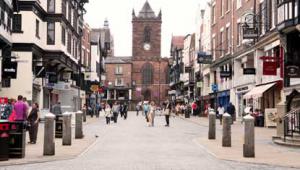Appearing in front of the committee on Tuesday, chief executive of the Local Government Information Unit Jonathan Carr-West criticised a range of aspects of the current system.
He noted the business rates retention creates “perverse incentives”, encouraging authorities to build certain types of businesses that might not contribute to their “more rounded, place-shaping view”.
Carr-West also said that there is no causal link between business rates income and local need and suggested the system is highly volatile and therefore not a sustainable funding mechanism.
“It does feel like a very 20th century solution to taxing a 21st century economy,” he added.
The government is currently planning to increase business rates retention from 50% to 75% by 2020-21.
But LGiU’s chief executive said this is an “odd thing to do” as the business rates system “seems to me an incredible rickety mechanism”.
He recommended business rates should be part of a suite of taxes, which could include the likes of digital sales tax, hotel taxes and environmental taxes.
These taxes may not be the right answer but should at least be on the table in discussions, he said.
“These are all things that are done in sensible, comparable economies…and here they are not even on the table for consideration,” he added.
Andrew Carter, chief executive of the Centre for Cities think-tank, agreed and noted moves towards a hotel – or tourist – tax in places like Edinburgh.
“It is almost inconceivable to imagine that in five years time some of out bigger urban areas won’t have some form of road pricing or congestion charging,” he told MPs.
The two think-tank leaders also mooted changes to the council tax system, which was recently found to be the only regressive part of the UK tax system.
“The reality is that trying to do a full revaluation would be politically very, very hard but you could add in extra banding, you could look at changes around the referendum threshold,” said Carr-West.
Carter was more forthright and called for the government to scrap the requirement to hold a local referendum to raise council tax rates by more than 2.99% per year.
“It is for local authorities to decide how much they charge their people, and if they get it wrong, they get voted out,” he concluded.
A recent report from the Localis think-tank recommended that councils should be able to keep 100% of business rates and rules should be relaxed on council tax hikes.











